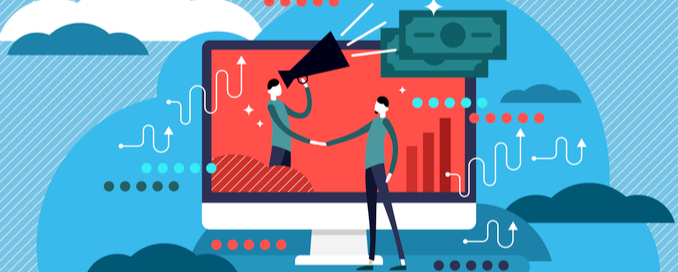
30-second summary:
When the first digital ad hit the internet in 1994, few of us could have predicted how this new, epoch-defining marketing tool would change the way brands interact with their consumers.
Twenty-five years on, a lot has changed. We’ve seen the industry evolve from one that would often ruin the user experience with excessive advertising and clunky page loads, to one that drives creative, personalized, and even memorable encounters.
But not all types of online marketing have completed this evolution to the next phase. Some remain artifacts of the twentieth century, still awaiting an overhaul fit for the technological era. To be connected to the “new electricity” that is artificial intelligence (AI).
Chief among these is affiliate marketing, which has been left to stagnate for two decades with a clunky, manual commissioning structure that allows neither brands nor publishers to truly maximize its potential.
If we left affiliate to languish like this, it strikes me that we’d do both brands and consumers a disservice. So, what’s the solution?
As with so many things these days, data-driven AI is opening up new opportunities and can help us make more dynamic, real-time decisions based on consumer information. As marketers we should harness this powerful force to deliver more streamlined affiliate experiences direct to brands and publishers.
By marrying data and machine learning we could improve our strike rates with targeted commissioning, brand-publisher matchmaking, and data-driven signals like propensity to buy.
A large part of the success will rest on an affiliate system fueled by big consumer data – from brands, publishers, and unique data from partners – that can more finely categorize online shoppers according to behaviors, channels, and purchase habits in a way that is simply imperceptible for human marketers. Such AI systems can find patterns in the data that allow a much better understanding of customers.
This combination of data and sophisticated machine learning techniques will also help advertising brands target and incentivize precisely the right publishers to help meet their business goals.
CMO of Spartan Race, Carola Jain, recently told a new Harvard Business Review Analytics Services report on the future of marketing: “You cannot make marketing decisions based on your ‘gut.’ Instead, you need to collect, analyze and leverage data to develop informed hypotheses that you then test in the marketplace.”
The result for affiliate? Potentially a new data-driven tool that can use this granular detail to accurately match-make advertisers with the perfect publishers and shoppers across all channels.
And in making affiliate marketing fit for purpose in the modern era, we could also employ machine learning systems to toggle commissioning, ensuring that marketing spend is consistently optimized to dynamically meet an advertiser’s inventory and product availability.
This means if one channel is outperforming expectations and another isn’t yielding, smart AI could automatically re-adjust advertising investment to really zone in on targets and drive pre-determined business objectives.
As Nicole Goldberg, Digital Marketing Manager at 7 for All Mankind and Splendid, told researchers, “Impressions used to be the big metric…but it doesn’t tell you the most important information about how your campaign is performing. It doesn’t tell you if people care.”
Mutual benefits
By updating and automating affiliate, we would also bring a new level of sophistication for publishers.
Smart decision-making would mean that ads placed on their site are more likely to be hyper-relevant and appealing to their visitors, enhancing the user experience at a time when consumers increasingly expect brands to “know” them.
Additionally, predictive machine learning systems can use publisher data to match advertisers with publishers they may never have even considered.
And this isn’t about disrupting existing relationships between publishers and advertisers, but about working to reinforce and catalyze them. It helps publishers serve ads that best suit their audiences and allows brand marketers to cut fat and extend their reach more efficiently.
For example, by creating audience segments – like those with a high propensity for coupon usage – and optimizing that category for retention. As per the trend across all industries, this is about using the tools available to us to make things better for all parties involved.
The end of an era?
So, does newly sophisticated, AI-driven affiliate marketing spell the end of advertising based on human – rather than data – in sight? Almost definitely not.
Machines can deliver formerly hidden detail from the data, but human expertise remain important for quality outreach. We should simply use tech to augment the expertise of affiliate experts, bringing together the best of human and machine.
Recent forecasts about the future of the industry have acknowledged this, with Gerry Murray, Research Director at IDC’s Marketing and Sales Technology Service, noting that the competitive advantage in the AI-enabled world of marketing will all be about creativity.
If AI is the new electricity – as some are characterizing it – let’s finally leave the 1990s behind and connect affiliate to “the grid” in order to deliver a new premium product. The end game is simple: effective, strategically targeted advertising that delivers experiences that people love.
Julie Van Ullen is the Managing Director, US for Rakuten Advertising. In her role, Julie is responsible for overseeing the commercial organization selling and supporting the holistic suite of Rakuten Advertising’s affiliate solutions for Advertisers and Publishers.
